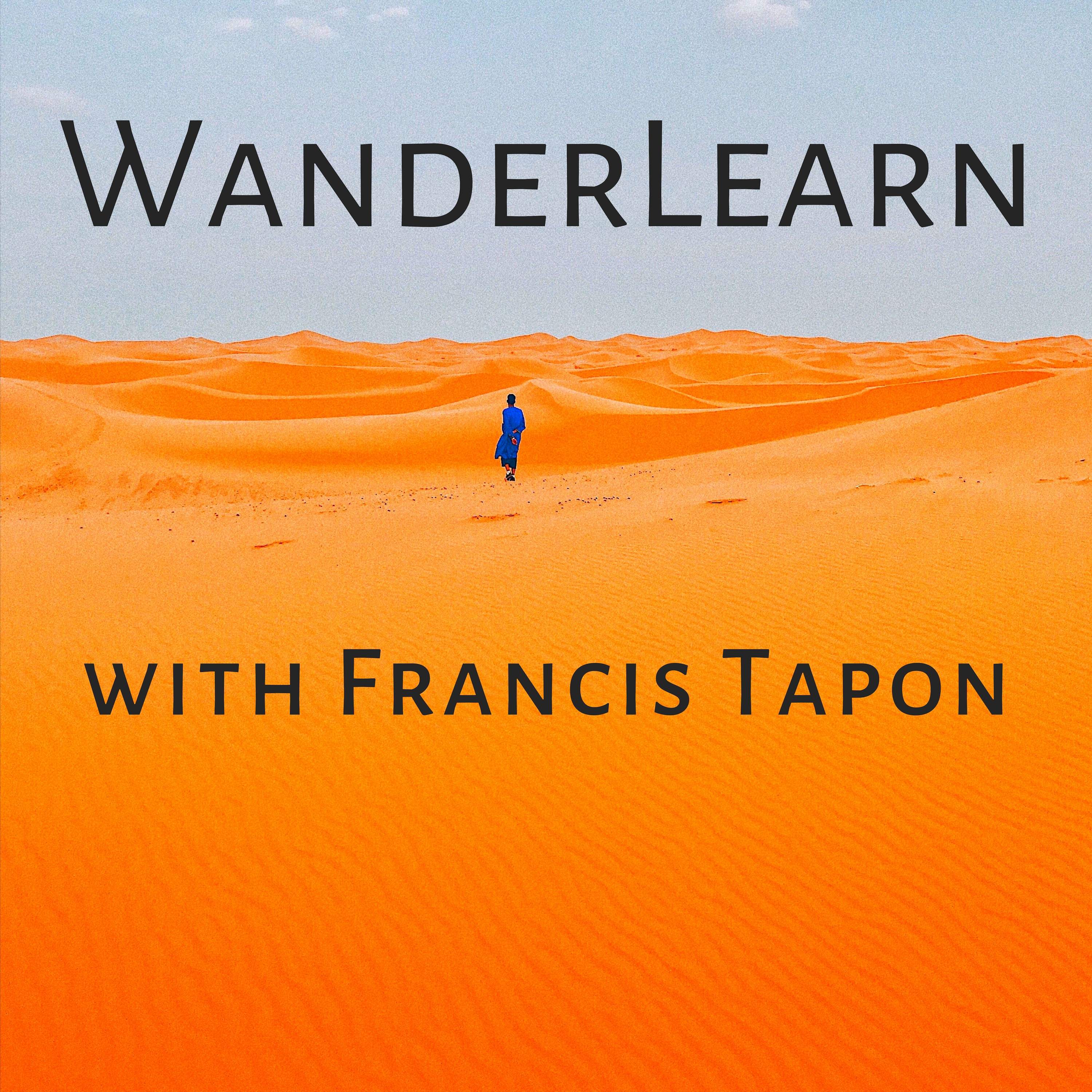
132.3K
Downloads
359
Episodes
Take a profound and distant journey. Call it Deep Travel, Immersive Travel, Slow Travel, or Vagabonding. Francis Tapon guides you to the intersection of travel, technology, and transformation. The podcast will compel you to go beyond your comfort zone. Occasionally, you‘ll also delve into the misunderstood world of cryptocurrencies.
Episodes

Thursday Mar 12, 2020
Running 30 Marathons Before Turning 30 - Liz Warner
Thursday Mar 12, 2020
Thursday Mar 12, 2020
Liz Warner is going to run 30 marathons before she turns 30 years old in June 2020. However, her real accomplishment is raising nearly $30,000 for 20 charities in the process!
In this podcast, we discuss some of the highlights and lowlights of her first 27 marathons and her Run To Reach experience.
She's going to finish on Mt. Everest in late May 2020.
Go to her donation page and follow her on Instagram.
Liz mentioned the Effective Altruism TED Talk as an inspiration.
In the podcast, I couldn't remember the name of the guy who ran 50 marathons in 50 states in 50 consecutive days. The guy's name is Dean Karnazes.
Confession: I goofed. I didn't realize how many marathons Liz Warner had run in Africa. I only asked her about a couple of them. I would have liked to delve into all of them.
Still, in our one-hour conversation, we cover a lot of ground!
More info
You can post comments, ask questions, and sign up for my newsletter at http://wanderlearn.com.
If you like this podcast, subscribe and share!
On social media, my username is always ftapon. Follow me on:
- http://facebook.com/ftapon
- http://twitter.com/ftapon
- http://youtube.com/user/ftapon
- http://pinterest.com/ftapon
- http://tumblr.com/ftapon
Claim your monthly reward by becoming a patron at http://Patreon.com/FTapon
Rewards start at just $2/month!
If you prefer to do a one-time contribution, you can send it to my PayPal at FT@FrancisTapon.com
If you prefer giving me Bitcoin, then please send BTC to my tip jar: 3EiSBC2bv2bYtYEXAKTkgqZohjF27DGjnV

Saturday Mar 07, 2020
Overlanding in 35 African countries in 3 years - Dan Grec
Saturday Mar 07, 2020
Saturday Mar 07, 2020
On March 14, 2020, Dan Grec's Kickstarter will end. If you're listening to this before that date, buy Dan's book on Kickstarter. His book (and website) are called The Road Chose Me.
If you're listening to this after March 14th, buy Dan Grec's book on Amazon.
Why buy his book?
Because for 999 days Dan Grec drove through 35 of the 54 African countries. His book recounts his 3-year adventure.
In this 90-min podcast, we discuss:
- His road trip across Latin America.
- How he saved money for 4 years for this 3-year trip.
- Why he biked to work in Yukon's winter.
- Which were some of the toughest African border crossings.
- How he got (or didn't get) African visas on the fly.
- How much it cost to ship his truck across the Atlantic
- How many times he got malaria and how it was.
- What he thinks of South Africa's future.
- What makes Sudan special and unique.
- His speaking tour.
- What he's planning to do next.
We discussed the Caprivi Strip. Here are the facts from Wikipedia:
Caprivi was named after German Chancellor Leo von Caprivi (in office 1890–1894), who negotiated the acquisition of the land in an 1890 exchange with the United Kingdom. Caprivi arranged for the Caprivi strip to be annexed to German South West Africa in order to give Germany access to the Zambezi River and a route to Africa's east coast, where the colony of German East Africa (now part of Tanzania) was situated. The river later proved unnavigable and inaccessible to the Indian Ocean due to the Victoria Falls. The transfer of territory was a part of the Heligoland-Zanzibar Treaty of 1890, in which Germany gave up its interest in Zanzibar in return for the Caprivi Strip and the island of Heligoland in the North Sea.
We also wondered where the expression "rest on your laurels" comes from. Simply put: the origins of the phrase lie in ancient Greece, where laurel wreaths were symbols of victory and status.
You can watch the interview on YouTube, although the audio is out of sync. https://www.youtube.com/watch?v=IaL8jLnRf_4&
More info
You can post comments, ask questions, and sign up for my newsletter at http://wanderlearn.com.
If you like this podcast, subscribe and share!
On social media, my username is always ftapon. Follow me on:
- http://facebook.com/ftapon
- http://twitter.com/ftapon
- http://youtube.com/user/ftapon
- http://pinterest.com/ftapon
- http://tumblr.com/ftapon
Claim your monthly reward by becoming a patron at http://Patreon.com/FTapon
Rewards start at just $2/month!
If you prefer to do a one-time contribution, you can send it to my PayPal at FT@FrancisTapon.com
If you prefer giving me Bitcoin, then please send BTC to my tip jar: 3EiSBC2bv2bYtYEXAKTkgqZohjF27DGjnV
Health Access Sumbawa
One of WanderLearn's top patrons, Kathy Kennedy Enger, asked me to draw attention to Health Access Sumbawa. I am happy to promote this remarkable nonprofit.
In 2014, Jack Kennedy founded the organization to bring malaria control and healthcare to remote, impoverished communities. It started on the remote island of Sumbawa, Indonesia. Since then, it's expanded thanks to generous donations. Visit their website to learn more and to donate: https://healthaccesssumbawa.org
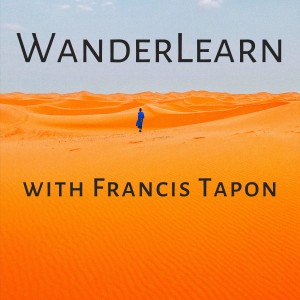
Friday Feb 28, 2020
Defending American Culture
Friday Feb 28, 2020
Friday Feb 28, 2020
Part 5 of 5 of the "What Can Americans Teach Europeans" series
Snobby Europeans love to say that Americans have “no cuisine, no culture, no history.”
Let’s refute this belief.
We’ll begin with food. First, Americans brought hamburgers and Coca-Cola to the world. The French (and many others) will immediately sniff and say, “That doesn’t count.”
Really?
And foie gras does? That’s a dish that is prepared by force-feeding a poor duck. Now that’s really classy and sophisticated. Big Macs start looking like haute cuisine.
 Moreover, America’s unique cuisine doesn’t end with a cheeseburger and a Coke. We’ve either invented or popularized:
Moreover, America’s unique cuisine doesn’t end with a cheeseburger and a Coke. We’ve either invented or popularized:
- banana splits
- brownies
- buffalo wings
- cheesesteaks
- corn dogs
- cotton candy
- corn on the cob
- doughnuts
- fried chicken
- fudge
- garden burgers
- grits
- hot dogs
- ice cream cones
- Jell-O
- macaroni and cheese
- mashed potatoes
- onion rings
- pancakes
- peanut butter and jelly sandwiches
- pecan pie
- popcorn
- Popsicles
- potato chips
- Rice Krispie treats
- root beer float
- shoofly pie
- sloppy joe
- submarine sandwiches
- the Twinkie.
Not only does this list prove that Americans have plenty of dishes that are uniquely ours, but this list also explains why we are so incredibly fat.
Obviously, American cuisine isn’t the most nutritious cuisine on the planet. The point is that we invented plenty of dishes. Besides, it’s impossible to find any national cuisine that is 100 percent healthy.
Since the Japanese live the longest, they have arguably the best diet around. However, even the Japanese eat plenty of deep-fried foods and white rice. And they often wash it down with beer or sake.
Yes, Americans have one of the least healthy diets on the planet; on the other hand, I’ve never found a country that can make salads that are as delicious as the ones you can find in California.
Finally, America is better than any other country at welcoming (and eating) exotic food from all over the world. Try finding non-Italian cuisine in Italy.
The other insult Europeans like to fling at Americans is that we have “no culture.”
Really?
That’s funny because it seems that no other country does a better job of exporting its culture than America does. It’s hard to go anywhere on the planet and meet people who do not know about American music, television, books, movies, sports, and cuisine (which includes the fast food it invented).
Cultural snobs will say all that doesn’t count and that it’s not real culture. Who decided that?
Why is the movie Raiders of the Lost Ark not as culturally significant as Schindler’s List? They are both masterpieces (and they happen to both be directed by the same American).
Is Michael Jordan not as important as Roger Federer, the Swiss tennis player?
Is Elvis less important than Mozart?
If American TV is so bad, why do I see it in every country I go to? It’s hard to go anywhere and not see The Discovery Channel. Every major country copies American Idol and other popular TV shows.
The world copies American culture. The copying of American culture is so pervasive that most people who complain about “globalization” are really complaining about “Americanization.”
 Snobs insist this is all “low culture.” First, that’s arrogant and subjective, but let’s play along.
Snobs insist this is all “low culture.” First, that’s arrogant and subjective, but let’s play along.
If you want “high culture,” then consider American writers (Twain, Fitzgerald, Poe, Thoreau, T.S. Eliot, Kerouac, Tennessee Williams), American fashion designers (Ralph Lauren, Calvin Klein, Levi Strauss), American visual artists (O’Keefe, Pollock, Warhol, Rockwell, Ansel Adams, the sculptors of DC’s monuments), American composers (Irving Berlin, Scott Joplin, Philip Glass, George Gershwin, John Williams), American chefs (Emeril, Nathalie Dupree, Alice Waters, Julia Child, Anthony Bourdain), and American architects (Julia Morgan, Buckminster Fuller, Frank Lloyd Wright). If you admire skyscrapers, remember that Americans were the first to make those too. In short, Americans have culture—in both the “high” and “low” flavors.
Finally, the last put down that Europeans lobs at Americans is that America has “no history.” Sadly, this insults the Native Americans more than anyone else. Tell the descendants of the Incas, Mayans, and Aztecs that they have no history. Tell the Native Americans in North America that they have no history when most historians estimate that they’ve been running around America ever since they crossed the land bridge near the Bering Strait 12,000 years ago. Several Northern European countries weren’t even populated until 8,000 years ago. American history, therefore, is at least 4,000 years older than the Scandinavian and Baltic history.
 If you need impressive structures to believe that a country has “history,” then visit the archaeological remains in Monks Mound, Taos, and Chaco. Or visit Teotihuacan, Tikal, and Machu Picchu in Central and South America.
If you need impressive structures to believe that a country has “history,” then visit the archaeological remains in Monks Mound, Taos, and Chaco. Or visit Teotihuacan, Tikal, and Machu Picchu in Central and South America.
Besides, many of Europe’s impressive buildings are only a few hundred years old. Boston’s Faneuil Hall, built in 1743, isn't much younger than many of Europe's most treasured buildings. The dirty little secret that few Europeans will talk about is that many of their “old” buildings were recently reconstructed from scratch. For example, Warsaw and Dresden look like old cities, but all their buildings are younger than Disneyland.
Although Eurasians were better at documenting their ancient history than Americans were, it doesn’t mean that Americans don’t have any history. It just means you need to look a bit harder, but it’s there.
At best, a few Europeans countries claim that they started in the seventh century, but many were born around the eleventh century. However, these “nations” were fragile and had far more pronounced regional identities than national ones. They weren’t like modern nations today, but rather fiefdoms and small territories clumped together in a quasi-union.
Even today, European countries are more regionally focused than nationally focused. In other words, 500 years ago European nations were not much different than the American nations of the Aztecs, Incas, Comanche, and Sioux. Just like Europeans, Native Americans had a hierarchical government, languages, and culture.
It’s incredibly Euro-centric (and ignorant) to argue that American history started with the arrival of the Europeans. Yet that’s exactly what many Europeans implicitly do when they say “America has no history.”
That’s like Turks saying that European history started when the Ottomans invaded the Balkans 500 years ago. The Slavs would be furious to hear that. The Turks displaced, killed, and mixed with Slavs just like Europeans killed, displaced, and mixed with Native Americans.
Some Europeans backpedal out of this argument by saying, “We’re not saying that the American continent has no history, just that America, the country, is young and doesn’t have much history.”
And your country does? Apart from Iceland, America has the oldest government in existence. Most European countries formed new governments and new constitutions less than 70 years ago.
I hope this shuts up snobs throughout the world who keep spreading the stupid idea that America has “no cuisine, no culture, and no history.”
Although I’ve been picking on Europeans, other people are also guilty of promoting this idea. Even Americans do it. It’s time we educate those who are ignorant.
In short, I’m not asking anyone to like American cuisine, culture, or history. I’m just asking everyone to stop believing that we don’t have any.
Conclusion of the five-part series on What Americans Can Teach Europeans
Europeans are right to criticize America’s foreign policy and the CIA because both can be aggressive and unfair. However, let’s give the American empire credit for being the most benign empire ever.
Let’s also admit that the CIA doesn’t know and control everything.
Similarly, Europeans have a fair point when they say that Americans are fake, ignorant, and a bit low-brow culturally. However, when compared to typical Europeans, we’re not that bad.
Pass this on to anyone who tries to argue otherwise. And tell them that a half-French, half-Chilean person wrote it—someone with no American blood in him.
Europeans have much to teach Americans, which is why I’ve written a 740-page book that captures the lessons from Eastern Europe. However, this article series is for Europeans, so they can learn a bit more about America and have a more realistic perspective of the United States.
Lastly, do Americans have five criticisms about Europeans too? No. Just one. We wish Europeans would catch up to the rest of the world cultures by being a bit more open, warm, friendly, and smiling. Have a nice day!
In case you missed it, read part 1 of the What Americans Can Teach Europeans article series.
This is an excerpt from the Appendix of The Hidden Europe: What Eastern Europeans Can Teach Us. Although this article is filed in Western Europe, its message is for Eastern Europeans and everyone else on the planet who believes these five American myths. For those who worry that fanatical American patriots have brainwashed me, don't worry. About 99% of my upcoming book is about what Eastern Europeans can teach Americans (hence, the title). I'm simply sharing the 1% of my book that argues the contrary point. Please read the Introduction to The Hidden Europe to get the complete picture.
More info
You can post comments, ask questions, and sign up for my newsletter at http://wanderlearn.com.
If you like this podcast, subscribe and share!
On social media, my username is always ftapon. Follow me on:
- http://facebook.com/ftapon
- http://twitter.com/ftapon
- http://youtube.com/user/ftapon
- http://pinterest.com/ftapon
- http://tumblr.com/ftapon
Claim your monthly reward by becoming a patron at http://Patreon.com/FTapon
Rewards start at just $2/month!
If you prefer to do a one-time contribution, you can send it to my PayPal at FT@FrancisTapon.com
If you prefer giving me Bitcoin, then please send BTC to my tip jar: 3EiSBC2bv2bYtYEXAKTkgqZohjF27DGjnV
Health Access Sumbawa
One of WanderLearn's top patrons, Kathy Kennedy Enger, asked me to draw attention to Health Access Sumbawa. I am happy to promote this remarkable nonprofit.
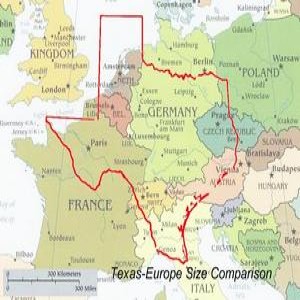
Friday Feb 21, 2020
Defending American Ignorance
Friday Feb 21, 2020
Friday Feb 21, 2020
Part 4 of 5 of the "What Americans Can Teach Europeans" series
 Americans are criticized for being ignorant of geography, languages, and the world in general.
Americans are criticized for being ignorant of geography, languages, and the world in general.
Let’s examine geography first. For example, someone from Slovakia often feels smart because he can name at least ten countries near him and explain what’s basically going on there. He says Americans are stupid because they can’t do this.
Humans are regionally focused. Today, for the average human, that radius of interest and knowledge might be 500 km. For someone in Nebraska, that means being able to name 10 states around him. For someone in Belgium, that means 10 countries. The level of geographic knowledge is effectively the same. Europe and the United States are roughly the same size. Although it’s true that a Nebraskan won’t find Belgium on a map, it’s also true that a Belgian won’t find Kansas on a map. And neither will find Togo or Cambodia. People are generally ignorant of anything that is beyond their geographic radius of knowledge.
src="/wanderlearn/episode/update/id/images/travels/europe/usa/USnews.png" alt="Imagine if they had asked people if they closely followed the news about Guinea Bissau" />The same goes for being aware of what’s going on. The Nebraskan will know what’s going on in Iowa, Missouri, Indiana, and maybe California. Meanwhile, the Belgian will have an idea of the general affairs in Luxembourg, Denmark, Germany, and maybe Greece. They’re all about the same distance from each other, the only difference is one crosses country lines while the other crosses state lines. And, of course, the American won’t know what’s going on in those European countries, just like the European won’t know what’s going on in those particular American states. Americans won’t know about the floods in Romania any more than a Romanian will know about the tornadoes in Oklahoma.
However, the European persists and says that Americans don’t know anything about world events and yet everyone knows what’s going on in America. One Latvian told me she was upset that she knows so much about America and Americans don’t know anything about Latvia. It was tough to break the news to her that Latvia’s physical, economic, and political size is insignificant. And it’s really painful to tell the same thing to the French. But it’s true.
Europeans know what’s going on America not because they’re more worldly and sophisticated, but because America has a lot of influence in their affairs. America knows little about individual European countries because not one European country has much impact on America (except for perhaps Britain or Russia). Most Europeans don’t know much more than Americans about what’s happening in Uruguay, New Zealand, and Namibia because those countries are both far and insignificant to them. And those countries don’t give a shit about all the tiny European countries either.
 In addition, educated Europeans who do know lots of stuff about the world often compare themselves with non-educated Americans. They walk through New York and tell people, “Hi, I’m from Bulgaria, do you know where that is?” They’re horrified that New Yorkers don’t know crap about Bulgaria and conclude that Americans are geographically ignorant idiots, unlike the brilliant Bulgarians.
In addition, educated Europeans who do know lots of stuff about the world often compare themselves with non-educated Americans. They walk through New York and tell people, “Hi, I’m from Bulgaria, do you know where that is?” They’re horrified that New Yorkers don’t know crap about Bulgaria and conclude that Americans are geographically ignorant idiots, unlike the brilliant Bulgarians.
Meanwhile, a girl from Laos goes to Bulgaria and asks the people she meets, “Do you know where Laos is?” You can guess the response. Please compare an educated, well-traveled American with an educated, well-traveled European; or the American on the street with the European on the street. You’ll discover the difference isn’t that big.
Most who complain about these issues come from countries much smaller than the US. The smaller the country, the more they’re forced to look outside because they quickly exhaust the business and travel opportunities in their own country. Go live in Belgium and see how fast you get bored.
People who live in big countries can spend their whole lives there and not get bored. It’s not that we’re more stupid or have a bad education system (although both of these may be true), but it’s primarily because learning about a big country is complex enough.
Should Americans learn more about the world and its languages? Absolutely. We should all be flogged for our ignorance. And we should also flog ignorant people from other big countries like the Chinese, Brazilians, Russians, and the French. Why the French? Their country is smaller than Texas, so what’s wrong with that? Well, it’s always a good idea to flog the French whenever you get the chance.
In short, it’s true that Americans are ignorant about world affairs and it’s a shame given how much influence the US has globally. However, Europeans are also pretty ignorant about affairs outside of Europe (their geographical focus). They know about America and China because these two large economies influence everyone's life. Yes, Europeans know more about Africa and Asia than Americans, but Americans often know more about Central and South America than Europeans.
Another common criticism about Americans is that we don’t travel internationally. Again, scale distorts everything. A Hungarian feels well traveled because he’s been to 10 countries. However, most of them are probably near Hungary. If someone from Iowa logs the same miles as the Hungarian, she won’t even leave America. At best, she’ll have visited Mexico, Canada, or the Caribbean, which is what many Americans do. In other words, the Iowan might feel well traveled if he’s been to 10 US states. Each state in America is about the size of a European country: Germany is the size of Montana, Poland is the size of New Mexico, Slovenia is the size of New Jersey, Belarus is the size of Kansas, and Greece is the size of Alabama.
 Americans are criticized for not speaking foreign languages. Geography explains quite a bit. The Netherlands is tiny and surrounded by countries that don’t speak Dutch. They don’t speak four languages because they want to. They do it because they have to. How much incentive you have to learn a foreign language depends on:
Americans are criticized for not speaking foreign languages. Geography explains quite a bit. The Netherlands is tiny and surrounded by countries that don’t speak Dutch. They don’t speak four languages because they want to. They do it because they have to. How much incentive you have to learn a foreign language depends on:
(1) the size of your country
(2) the pervasiveness of your language.
For instance, Americans rarely speak foreign languages well because we’re a huge country and English speakers are everywhere. Russians and Chinese speak foreign tongues as well as Americans—yeah, that bad. Neither of these big countries with their pervasive languages has much incentive to learn anything else. Slovenians live in a tiny country and few outside their country speak Slovenian, so they must learn multiple languages. It’s not that Americans are stupid or Slovenians are smart. Everyone is just practical.
Furthermore, most Europeans can speak only their native language. My favorite pastime is asking Europeans if they speak a foreign language. The results are dismal. The true polyglots come from countries where just a few million people speak their language (e.g., Andorra, Slovenia, and Nordic countries).
Finally, ignorance often goes hand-in-hand with being provincial, and Europeans are far more provincial than Americans. Wherever you are in Europe, ask the people you meet where they’re from. The answer is almost always the same: “I’m from here.” They were born and raised in the town you meet them in, they still live there, and they have no plans to leave. Stanford University researchers have found a strong correspondence between the genetics and geographical origins of Europeans. In fact, 90% of Europeans live within 700 kilometers (435 miles) of where they were born, and 50% to within 310 kilometers (193 miles).
Ask the same question in America, and you’ll rarely get such an answer—people are usually immigrants, even if it means moving from Chicago to Miami. In San Francisco, people are often shocked when I tell them that I was born and raised there. “Wow, I’ve never met someone who was born here! You’re a native!” They make it sound as if I were a Native American. Because Americans move around much more than Europeans, Americans are less provincial than Europeans.
In fact, Europe is so ridiculously provincial that most of their countries are far from united. Spain and Switzerland each have four language regions in their small countries. That alone discourages them from moving around within their country, and the idea of moving a few hundred kilometers to live in a neighboring country is scary. Italians are so regionally focused that they hardly know what is happening on the other side of their local hill. One reason so many strong European dialects persist is that people refuse to venture far. Eastern Europeans are filled with so many prejudices about people who live just a few hundred kilometers away because they’ve spent so little time there. Instead, they find jobs locally, marry locally, and die locally.
Conclusion
I’m embarrassed that Americans are so poorly traveled and so bad at geography and languages. Although other big countries aren’t much better, they usually are better. And yes, Europeans do know more about geography and world affairs than most Americans. However, the difference is not as big as Europeans like to believe. Moreover, I wish American media devoted as much time to news from developing nations as the European media does.
On the other hand, I often assume that other countries know much more about the world than Americans, and I’m often disappointed to learn that it’s not accurate. In conclusion, it’s true: Americans are ignorant about many things. However, Europeans are hardly much better and sometimes their provincialism makes them worse.
In case you missed it, read part 1 of the What Americans Can Teach Europeans article series.
More info
You can post comments, ask questions, and sign up for my newsletter at http://wanderlearn.com.
If you like this podcast, subscribe and share!
On social media, my username is always ftapon. Follow me on:
- http://facebook.com/ftapon
- http://twitter.com/ftapon
- http://youtube.com/user/ftapon
- http://pinterest.com/ftapon
- http://tumblr.com/ftapon
Claim your monthly reward by becoming a patron at http://Patreon.com/FTapon
Rewards start at just $2/month!
If you prefer to do a one-time contribution, you can send it to my PayPal at FT@FrancisTapon.com
If you prefer giving me Bitcoin, then please send BTC to my tip jar: 3EiSBC2bv2bYtYEXAKTkgqZohjF27DGjnV
Health Access Sumbawa
One of WanderLearn's top patrons, Kathy Kennedy Enger, asked me to draw attention to Health Access Sumbawa. I am happy to promote this remarkable nonprofit.
In 2014, Jack Kennedy founded the organization to bring malaria control and healthcare to remote, impoverished communities. It started on the remote island of Sumbawa, Indonesia. Since then, it's expanded thanks to generous donations. Visit their website to learn more and to donate: https://healthaccesssumbawa.org
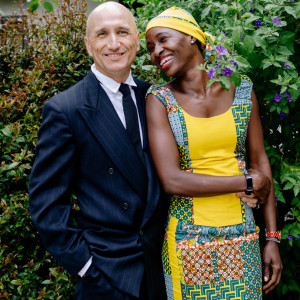
Friday Feb 14, 2020
Defending the American Smile
Friday Feb 14, 2020
Friday Feb 14, 2020
Smile for Valentine's Day!
Part 3 of 5 of the "What Americans Can Teach Europeans" Series
 Europeans often criticize the “American smile.” They say that Americans are fake, because they often smile when they are not really happy. Americans pretend to be happy to see you, when they’re not. A customer service representative might greet you with a cheery, “Hi! How can I help you?” when she’s really a mean bitch.
Europeans often criticize the “American smile.” They say that Americans are fake, because they often smile when they are not really happy. Americans pretend to be happy to see you, when they’re not. A customer service representative might greet you with a cheery, “Hi! How can I help you?” when she’s really a mean bitch.
Eastern Europeans somehow think that they are superior because they give you a scowl instead of a smile. Frankly, I’ll take a fake smile every day over a sincere scowl. I might delude myself, but I don’t care. It just feels better. Why, when we have the choice between giving a smile or a frown, should we opt for a frown? The waiter and the person at the checkout counter has a choice. Why not put on a smile?
Some may say it’s not simply a choice between a frown or a smile. There’s a third way, the European way, which is a neutral face. This, Europeans claim, is the most sincere. “Why should the store representative smile at you when he doesn’t even know you? That’s insincere,” the Europeans argue. “It’s better to have a neutral face.”
Look at yourself in the mirror and put on your best neutral face. Imagine someone just walked into your store and you’re wearing that neutral face. What does it look like to the customer? It looks a bit cold, distant, unfriendly, and unapproachable. Obviously a frown is even worse, but the neutral look is off-putting too.
Furthermore, the neutral look would be fine if the customer service agent would immediately brighten up once they learn that you’re not trying to rape their daughter. However, they don’t. Even after you smile and are friendly, they often keep that same neutral, ambivalent face throughout the transaction. In Eastern Europe, the neutral look will sometimes turn into a tirade against your simple attempts of communication. It makes for a lousy and cold experience.
The Eastern European tries a different argument: “Fine, so we’re a bit cold at the beginning, but eventually we warm-up, and when we do, you’ll have a friend for life.” So what? Do you want a freaking medal?
Newsflash: Americans make lifelong friends too. Like any human, we usually take our time before reaching that point. The difference is that we don’t use that as an excuse to be an asshole at the beginning.
Moreover, the American smile isn’t as fake as it seems. Many Americans are genuinely happy. Americans are positive people who usually give strangers the benefit of the doubt. There are plenty of cynical Americans, but when it comes to one-on-one interactions, Americans often assume that the other person is a good guy. That makes them sincerely smile.
Of course, I have a cultural bias because I grew up in America, the land of the smiles. However, America doesn’t have a monopoly on smiles. Most people from Asia, Latin America, Africa, and Oceania all tend to wear a smile on their faces by default. Their service personnel smile warmly often. In other words, judged on a global scale, Americans aren’t weird because they smile so much. It’s the Eastern Europeans who are weird because they smile so little.
See Gallup poll
P.S. Southeastern Europe (especially around Bosnia, Macedonia, Albania, and Southern Serbia) people have a tendency to smile as much of most of the non-European world.
In case you missed it, read part 1 of the What Americans Can Teach Europeans article series.
"What Americans Can Teach Europeans"
More info
You can post comments, ask questions, and sign up for my newsletter at http://wanderlearn.com.
If you like this podcast, subscribe and share!
On social media, my username is always ftapon. Follow me on:
- http://facebook.com/ftapon
- http://twitter.com/ftapon
- http://youtube.com/user/ftapon
- http://pinterest.com/ftapon
- http://tumblr.com/ftapon
Claim your monthly reward by becoming a patron at http://Patreon.com/FTapon
Rewards start at just $2/month!
If you prefer to do a one-time contribution, you can send it to my PayPal at FT@FrancisTapon.com
If you prefer giving me Bitcoin, then please send BTC to my tip jar: 3EiSBC2bv2bYtYEXAKTkgqZohjF27DGjnV
Health Access Sumbawa
One of WanderLearn's top patrons, Kathy Kennedy Enger, asked me to draw attention to Health Access Sumbawa. I am happy to promote this remarkable nonprofit.
In 2014, Jack Kennedy founded the organization to bring malaria control and healthcare to remote, impoverished communities. It started on the remote island of Sumbawa, Indonesia. Since then, it's expanded thanks to generous donations. Visit their website to learn more and to donate: https://healthaccesssumbawa.org

Friday Feb 07, 2020
Defending the CIA
Friday Feb 07, 2020
Friday Feb 07, 2020
Part 2 of 5 of the "What Americans Can Teach Europeans" series
Several Eastern Europeans thought I worked for the CIA. They asked, “Why else would you be in Albania?”
It’s hilarious what Eastern Europeans seriously believe the CIA does:
- A Slovenian told me that the “weird” weather they were experiencing was due to the CIA testing wacky weather-controlling weapons nearby.
- If someone semi-famous died unexpectedly, the CIA killed him.
- The CIA controls all elections. But what if an anti-American candidate wins? It’s because the CIA wanted that to happen so it can use it as an excuse to invade the country, or because it somehow fits in their grand plan of world domination.
- A Bulgarian told me that the Illuminati and the CIA control Obama and all world leaders. The CIA, he assured me, is the puppet-master behind everything, including what you had for breakfast this morning.
Although it’s fun to believe that the CIA controls the universe, let’s stop smoking marijuana for a minute. The CIA is so ignorant that it often can’t find its house keys. The CIA controls so little that it can’t even choose what color to paint its buildings. It’s just another bumbling, inefficient, and bureaucratic government organization whose right-hand doesn’t know what its left hand is doing. The CIA morons couldn’t even assassinate Fidel Castro, a leader from a puny island right next to America. How lame is that?
The CIA has its clever moments but is often ignorant and powerless. Unfortunately, there’s no way to prove this to someone who really wants to believe in conspiracy theories, so I won’t even try.
Part of me would like to keep the myth about the omnipotent CIA alive. As long as other nations believe that the CIA is all-knowing and all-powerful, they’ll fear to attack the US. They’ll say, “Maybe we’re attacking America because that’s exactly what the CIA wants us to do!” They’ll second-guess their actions and be scared to challenge the god-like CIA.
Therefore, if I have not convinced you, good. Keep believing that the CIA is your under your bed, because, of course, it probably is.
In case you missed it, read part 1 of the What Americans Can Teach Europeans article series.
One person said, "Francis, very interesting article. Do you have any thoughts as to why the CIA has such a reputation?"
I'm sure there are several reasons for the CIA's reputation in Eastern Europe. Among them:
- Cold War hangover: Just like the KGB was feared in the US, the CIA played that role in the East, and still does, apparently.
- There's some truth to it: the CIA has put up the Shah in Iran and put up a Guatemalan dictator.
- When people don't understand something or can't explain it, then they often pick mysterious entities (Zeus, God, CIA) to explain something.
In case you missed it, read part 1 of the What Americans Can Teach Europeans article series.
More info
You can post comments, ask questions, and sign up for my newsletter at http://wanderlearn.com.
If you like this podcast, subscribe and share!
On social media, my username is always ftapon. Follow me on:
- http://facebook.com/ftapon
- http://twitter.com/ftapon
- http://youtube.com/user/ftapon
- http://pinterest.com/ftapon
- http://tumblr.com/ftapon
Claim your monthly reward by becoming a patron at http://Patreon.com/FTapon
Rewards start at just $2/month!
If you prefer to do a one-time contribution, you can send it to my PayPal at FT@FrancisTapon.com
If you prefer giving me Bitcoin, then please send BTC to my tip jar: 3EiSBC2bv2bYtYEXAKTkgqZohjF27DGjnV
Health Access Sumbawa
One of WanderLearn's top patrons, Kathy Kennedy Enger, asked me to draw attention to Health Access Sumbawa. I am happy to promote this remarkable nonprofit.
In 2014, Jack Kennedy founded the organization to bring malaria control and healthcare to remote, impoverished communities. It started on the remote island of Sumbawa, Indonesia. Since then, it's expanded thanks to generous donations. Visit their website to learn more and to donate: https://healthaccesssumbawa.org
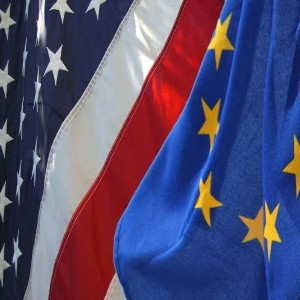
Sunday Feb 02, 2020
Defending American Foreign Policy
Sunday Feb 02, 2020
Sunday Feb 02, 2020
Part 1 of 5 in the Defending America Series.
Throughout Eastern Europe, I asked, “What can your country teach America?” I’ve documented their excellent suggestions in The Hidden Europe: What Eastern Europeans Can Teach Us.
As part of this process, Europeans often told me, quite bluntly, what they think of Americans. The fact that I’m half-European and that I have no American blood in me (I was born of a French father and a Chilean mother) probably made them more comfortable to share their true thoughts. After getting an earful, it became clear that there are a few things Americans can teach Europeans about America.
(I had often heard similar criticisms in Western Europe, which is why I'm posting this in the Western Europe section.)
There are five themes that Europeans wail against Americans
- America’s foreign policy shows that we’re a warmongering, imperialistic nation (see below for details).
- The CIA is behind everything.
- Americans are fake.
- Americans are ignorant.
- Americans are devoid of culture.
There’s a lot of truth to these five criticisms. In fact, in my book, I often make fun of these things. However, let’s load up the aircraft carriers and stealth bombers and blast away the five most common criticisms about Americans.
Let's start with the first one and then the other articles will address the other four, although you're welcome to jump to the one that interests you most.
Part 1 of 5 of the "What Americans Can Teach Europeans" series
Europeans say, “America is imperialistic. It starts wars. The CIA is everywhere.” True, true, true. America’s foreign policy is aggressive. However, let’s examine this more closely.
More info
You can post comments, ask questions, and sign up for my newsletter at http://wanderlearn.com.
If you like this podcast, subscribe and share!
On social media, my username is always ftapon. Follow me on:
- http://facebook.com/ftapon
- http://twitter.com/ftapon
- http://youtube.com/user/ftapon
- http://pinterest.com/ftapon
- http://tumblr.com/ftapon
Claim your monthly reward by becoming a patron at http://Patreon.com/FTapon
Rewards start at just $2/month!
If you prefer to do a one-time contribution, you can send it to my PayPal at FT@FrancisTapon.com
If you prefer giving me Bitcoin, then please send BTC to my tip jar: 3EiSBC2bv2bYtYEXAKTkgqZohjF27DGjnV
Health Access Sumbawa
One of WanderLearn's top patrons, Kathy Kennedy Enger, asked me to draw attention to Health Access Sumbawa. I am happy to promote this remarkable nonprofit.
In 2014, Jack Kennedy founded the organization to bring malaria control and healthcare to remote, impoverished communities. It started on the remote island of Sumbawa, Indonesia. Since then, it's expanded thanks to generous donations. Visit their website to learn more and to donate: https://healthaccesssumbawa.org
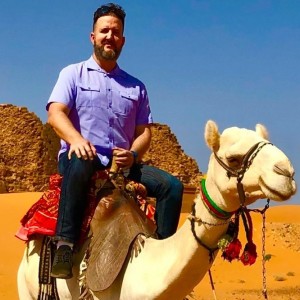
Sunday Jan 26, 2020
How To Travel When You Have Limited Time
Sunday Jan 26, 2020
Sunday Jan 26, 2020
In early 2020, Randy Williams has been to 142 countries. Although this is remarkable, it's especially impressive when you consider that he's been working full-time for most of his life.
It's understandable how someone who has years to travel is able to visit 142 countries, but doing it when you have a real job in the workaholic USA is hard.
Randy Williams describes:
- His first trip to Africa. He started in Cape Verde, then went to Senegal, Tunisia, and Algeria.
- Traveling to Tripoli, Libya soon after Khadafi's death.
- Traveling to Iraq and Venezuela.
- How Kabul, Afganistan was in January 2020.
- How a journalist friend was killed in Somalia.
- Using the Sherwes Travel Agency to get his business travel visa to Libya.
- How to be a trailblazer.
- How he got into Yemen a couple of months ago.
- Why he sees travel as a buffet.
You can see some of his travel photos on Slow Jams on Instagram.
More info
You can post comments, ask questions, and sign up for my newsletter at http://wanderlearn.com.
If you like this podcast, subscribe and share!
On social media, my username is always ftapon. Follow me on:
- http://facebook.com/ftapon
- http://twitter.com/ftapon
- http://youtube.com/user/ftapon
- http://pinterest.com/ftapon
- http://tumblr.com/ftapon
Claim your monthly reward by becoming a patron at http://Patreon.com/FTapon
Rewards start at just $2/month!
If you prefer to do a one-time contribution, you can send it to my PayPal at FT@FrancisTapon.com
If you prefer giving me Bitcoin, then please send BTC to my tip jar: 3EiSBC2bv2bYtYEXAKTkgqZohjF27DGjnV
Health Access Sumbawa
One of WanderLearn's top patrons, Kathy Kennedy Enger, asked me to draw attention to Health Access Sumbawa. I am happy to promote this remarkable nonprofit.
In 2014, Jack Kennedy founded the organization to bring malaria control and healthcare to remote, impoverished communities. It started on the remote island of Sumbawa, Indonesia. Since then, it's expanded thanks to generous donations. Visit their website to learn more and to donate: https://healthaccesssumbawa.org
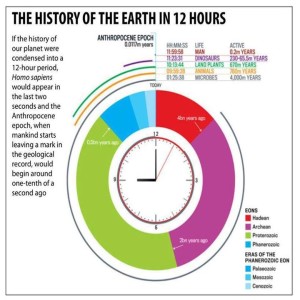
Friday Jan 17, 2020
Earth's History in 1 Calendar Year
Friday Jan 17, 2020
Friday Jan 17, 2020
The Pilgrim's perspective
Many people ask me, “What are you thinking about when you walk from sunrise to sunset in remote wildernesses?”
Sometimes I’m just thinking of the next step. Other times I’m thinking about Megan Fox.
However, during my pilgrimage, I do go into deep-thoughts mode occasionally. That’s what this article is about. It will lead to my next article which is about what it means to be human and my debate with a T-Rex on global warming. Yeah, light topics. Can’t I just talk about the weather?
One of the aspects that I love about thru-hiking is the sense of perspective it gives you. Most humans are stuck in day-to-day drudgery, incapable (or unwilling) to break the chains of their self-centered, short-term point of view. I confess I’m no better than the average Joe and that missing one synchronized light can really send me into a deep depression.
However, when I travel for months in the mountains I can’t help but have a broader perspective. For example, when I am walking a ridge on the Continental Divide, its history is etched into the landscape.
Although the Earth is 4.5 billion years old, the planet didn’t really start to settle down until it was a billion years old. And life didn’t really get going until the Pre-Cambrian era (over half a billion years ago). However, it is nearly impossible for my puny human brain to relate to that much time. Actually, a million years is too hard to imagine, even if I compare it with how long my bank puts me on hold.
Therefore, to crunch world history into a timescale that I can fathom let’s squeeze it into one calendar year. And I’ll focus on the development of the Continental Divide Trail (CDT). Here’s what we get.
Earth's history compressed into one year
January and February would be good months to stay in your cabin. The Earth’s environment was chaotic. Incessant wind and rain would erode away barren mountains faster than a plastic surgeon can erode away Michael Jackson’s nose.
Still, on February 25 (or is it February 30?), life would spring forth! Sure, these single-celled organisms would be stuck in the warm coastal waters and by the thermal vents, but we’ll take what we can get.
March 20: Stromatolites would pop up.
July 17: Multicellular life, those cells with nuclei, were strutting their stuff.
Trilobites (hard-shelled creatures) would start feeding on all the multi-cellular life. By the end of the month, small vertebrates would start feeding on the Trilobites. All you can eat restaurants were invented.
Most of the year would go by and still no life on the land.
Where would the Continental Divide be in October?
It wouldn’t be a thrusting mass of mountains that I walked. Quite the opposite! It would be a broad channel of water. You could ride your kayak down the channel!
In fact, if you flew over North America in June, you’d see that 60 percent of the land is underwater.
Would you see forests of trees on the land? Nope, you wouldn’t even see moss clinging to the ubiquitous rocks. Zero plant life. However, it wouldn’t be a static boring rock-filled landscape. It would be constantly eroding, pummeled by endless torrential rains that make the south-east Asian monsoons seem like a drizzle.
The Continental Divide would be impossible to recognize in early November. Instead of the Rocky Mountains stretching out as far as the eye can see, you’d see a massive sea that stretched from the Arctic to the Gulf of Mexico!
In early November, the first plants would gain a precarious foothold on land. For every plant that latches on the land, many will get washed away by the endless rain. The struggle of the plants to get established lasts for weeks, but they finally settle down. Vegetarians aren’t far behind.
On November 18, the Cambrian Explosion - a burst of complex life - would roll out. In a couple of days, the seas are crowded with fish. A few claustrophobic ones develop crude lungs, call themselves amphibians, and get timeshares on the land.
Around November 20, the Appalachian mountain range starts to rise and will be far higher than any other mountain range in the USA today. You wouldn’t find cozy shelters every 15 kilometers on the Appalachian Trail.
December starts with insects. Since CDT hikers hadn’t been invented yet, the mosquito started bugging the first amphibians, which show up on December 2. Sharks and seeded plants follow.
December 5: First reptiles.
December 12: Doh! The Permian Extinction, the most deadly event in Earth's history, happens. Siberian traps (big volcanoes) spew up so much toxic smoke that 95% of life on Earth dies.
December 13: Dinosaurs appear.
December 14: Dinosaurs chase the pathetic looking mammals that just start to appear. The dinosaurs thought these mammals were snacks since few were much bigger than a rat.
December 22: Plants with flowers appear. It's about time!
December 26: The planet's post-Christmas presents are cats and dogs. Cute puppies and kitties. The most memorable event of this day is when an asteroid the size of Manhattan Island strikes the Yucatan with a force of 100 million megatons. The impact would release a heat pulse that would set off fires across the planet. The result: a planetary dinosaur barbecue. Their “two-month” reign comes to an abrupt end.
December 27: Grasses spread like fire across the earth. Pigs and deer follow. The Rocky Mountains would finally start to rise and tower over the surrounding land. The CDT wasn’t well marked then either. The Colorado River would start its tedious process of slicing the Grand Canyon.
December 28: First primates jump through the trees.
The sun would rise on December 31 and still no sign of humans.
Finally, at 17:18, somewhere in Africa, the first clumsy hominids would stand up. During the last hours of the year, you’d see massive sheets of ice, as tall as mountains, cover America and Euroasia. Like an accordion, you’d see the ice sheets (glaciers) come and go four times in just a few hours. It would look like a global warming yo-yo gone wild.
With one hour to go before the year ends, Homo erectus shows up to the primate party.
At 23:30 the French start showing off their artistic talent: Cro-Magnon man draws cool paintings in some caves.
At 23:45 homo sapiens figure out how to make weapons of mass destruction: sharp knives and spears.
Around 23:55 civilization begins. Prostitution shortly follows. Egyptians, Babylonians, Greeks, and Romans each spend a minute building touristy buildings.
At 23:58 and 43 seconds, Jesus tells everyone to behave. We kill him a nanosecond later.
With just 20 seconds to go before the year draws to a close, Columbus bumps into America. Dick Clark is born and starts making a living counting down the seconds to the New Year. “Just 7 seconds to go!” announces Dick, and rebels sign the Declaration of Independence.
In the final 7 seconds, we finally arrive at the crown jewel of billion of years of evolution: Megan Fox.
More info
You can post comments, ask questions, and sign up for my newsletter at http://wanderlearn.com.
If you like this podcast, subscribe and share!
On social media, my username is always ftapon. Follow me on:
- http://facebook.com/ftapon
- http://twitter.com/ftapon
- http://youtube.com/user/ftapon
- http://pinterest.com/ftapon
- http://tumblr.com/ftapon
Claim your monthly reward by becoming a patron at http://Patreon.com/FTapon
Rewards start at just $2/month!
If you prefer to do a one-time contribution, you can send it to my PayPal at FT@FrancisTapon.com
If you prefer giving me Bitcoin, then please send BTC to my tip jar: 3EiSBC2bv2bYtYEXAKTkgqZohjF27DGjnV
Health Access Sumbawa
One of WanderLearn's top patrons, Kathy Kennedy Enger, asked me to draw attention to Health Access Sumbawa. I am happy to promote this remarkable nonprofit.
In 2014, Jack Kennedy founded the organization to bring malaria control and healthcare to remote, impoverished communities. It started on the remote island of Sumbawa, Indonesia. Since then, it's expanded thanks to generous donations. Visit their website to learn more and to donate: https://healthaccesssumbawa.org

Friday Jan 10, 2020
Answering Kidnapping Podcast Criticisms
Friday Jan 10, 2020
Friday Jan 10, 2020
Olaf Ofstad (pictured) was my guest on my 59th WanderLearn episode, which was about how to avoid and survive a kidnapping.
If you haven't listened to it yet, you should listen to it before listening to this episode.
One listener wrote me an email asking questions and criticizing some issues about the show.
Therefore, in this episode, I air those criticisms and I give Olaf Ofstad a chance to answer those questions and criticisms.
You'll also find out how I got muggled in Cameroon.
Whenever you have questions or comments, send them to me and I might feature them in a future episode!
More info
You can post comments, ask questions, and sign up for my newsletter at http://wanderlearn.com.
If you like this podcast, subscribe and share!
On social media, my username is always ftapon. Follow me on:
- http://facebook.com/ftapon
- http://twitter.com/ftapon
- http://youtube.com/user/ftapon
- http://pinterest.com/ftapon
- http://tumblr.com/ftapon
Claim your monthly reward by becoming a patron at http://Patreon.com/FTapon
Rewards start at just $2/month!
If you prefer to do a one-time contribution, you can send it to my PayPal at FT@FrancisTapon.com
If you prefer giving me Bitcoin, then please send BTC to my tip jar: 3EiSBC2bv2bYtYEXAKTkgqZohjF27DGjnV
Health Access Sumbawa
One of WanderLearn's top patrons, Kathy Kennedy Enger, asked me to draw attention to Health Access Sumbawa. I am happy to promote this remarkable nonprofit.
In 2014, Jack Kennedy founded the organization to bring malaria control and healthcare to remote, impoverished communities. It started on the remote island of Sumbawa, Indonesia. Since then, it's expanded thanks to generous donations. Visit their website to learn more and to donate: https://healthaccesssumbawa.org


